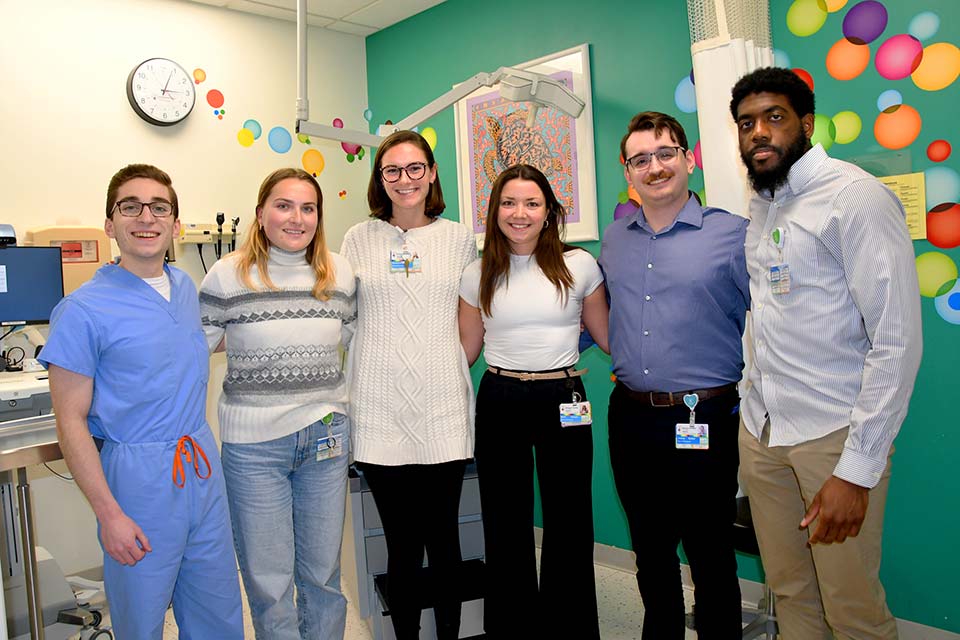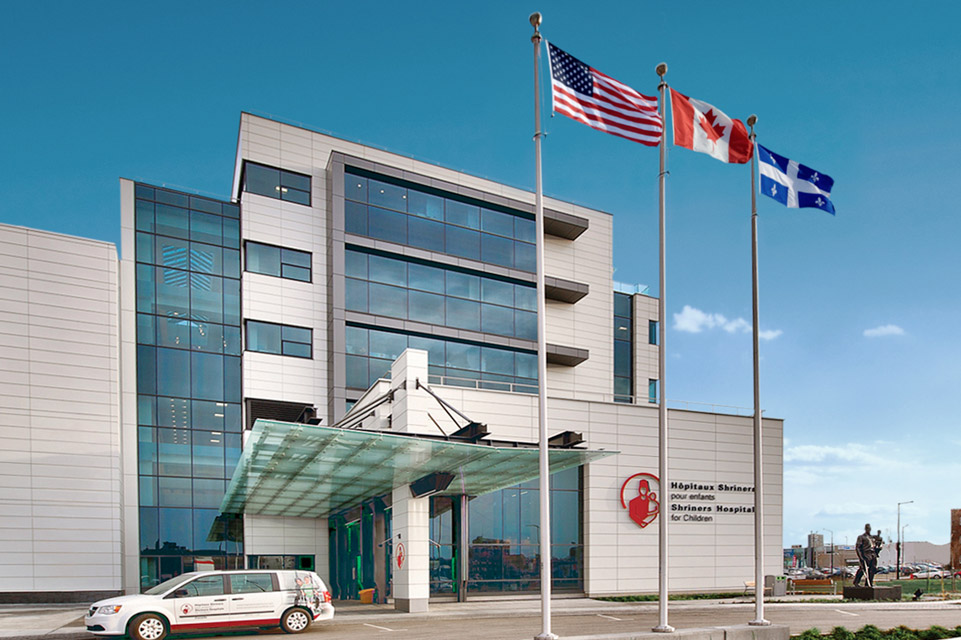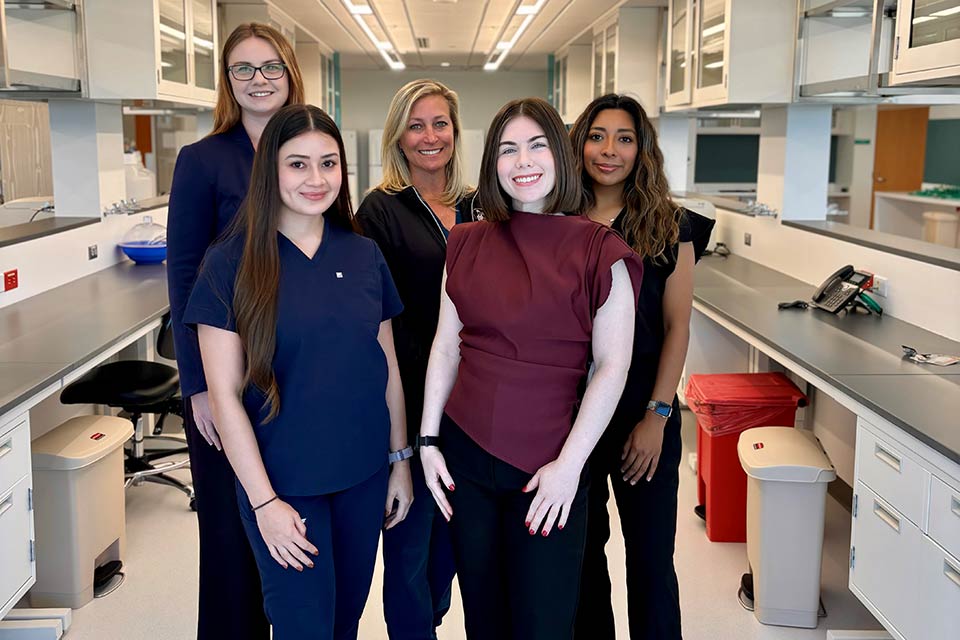Shriners Children’s Boston Fellowship Program Promotes Promising Advances in Burn Care

Irina Filz von Reiterdank, M.D., was accepted into Shriners Children’s prestigious post-doctoral fellowship program in Boston after receiving her medical degree. Now a Ph.D. candidate, her work involving the genetic modification of transplant organs holds tremendous promise in the treatment of severe burn injuries. Cutting-edge breakthroughs happening in the research labs at Shriners Children’s Boston are helping to advance precision pediatric care, continuously improving overall outcomes for patients and families.
Irina’s path to the Shriners Children’s Boston research team is a fascinating one. As a medical student in her home country of the Netherlands, she was particularly passionate about surgery, becoming the chairperson of the Dutch Surgical Society for Medical Students. Irina started a surgical residency in the Netherlands after the pandemic thwarted plans to complete her medical school thesis in Boston. A lecture about genetic engineering and modification led Irina to develop an interest in that field of research, and helped shape her goal to become a surgeon-scientist. She decided to apply for research fellowships and was accepted into the Shriners Children’s program, coming to Boston in the summer of 2021.
Irina’s research focuses on the genetic modification of transplanted organs, including skin. When patients have a large burn injury, they often do not have enough healthy skin to cover the wound area that needs grafting. Skin transplants from cadavers are an option, but these transplants result in rejection in the absence of immunosuppression therapy. This makes them very invasive for sick patients.
The goal of Irina’s work is to build a “smart” graft, donor skin that can sense and treat rejection locally. Genetic code added to the donor tissue helps to suppress rejection without causing negative side effects throughout the rest of the patient’s body. “This project has the potential to have a much wider application,” said Irina. “It is quite unique what we’re trying to do.”

Irina at work in the Shriners Children's Boston research lab
According to Irina, it took a year and a half for her to start seeing positive results from her research. “We learn from our failures,” she said. “By understanding what wasn’t working, I could figure out what might work.” Before her fellowship ended in 2023, Irina decided to stay in Boston to earn her Ph.D. Based on her work, her lab applied for and received a three-year Shriners Children’s research grant to further her genetic modification work.
“What’s extremely nice about a Shriners fellowship is that it’s for two years,” said Irina. “This really increases what you can achieve. In basic science, it is important to be able to build on your experience. Many fellowships are only one year, which makes it harder to reach your goals and attain significant results.”
The opportunity to collaborate with other skilled investigators was another benefit of Irina’s Shriners Children’s fellowship, and an aspect of her ongoing work that she appreciates. “I can spend three days researching something or I can ask the person next to me who has a different skill set than mine,” said Irina. "Sometimes I’m not even thinking about my project, but I’ll have a conversation with someone and get an idea because they have an insight that changes the way I see my own results. We learn from each other.”
Irina’s own medical training and surgical skills have also been a significant asset to her research. She hopes to pursue a residency as a surgeon-scientist, and sees great benefit in conducting research alongside clinical practice. “If you can combine those things it can be very useful,” she said. “If you know both you can work on issues and solutions at the same time. It’s nice to have a mixed environment."
Keep In Touch
Join our mailing list to stay up to date on everything that's happening at Shriners Children's.



